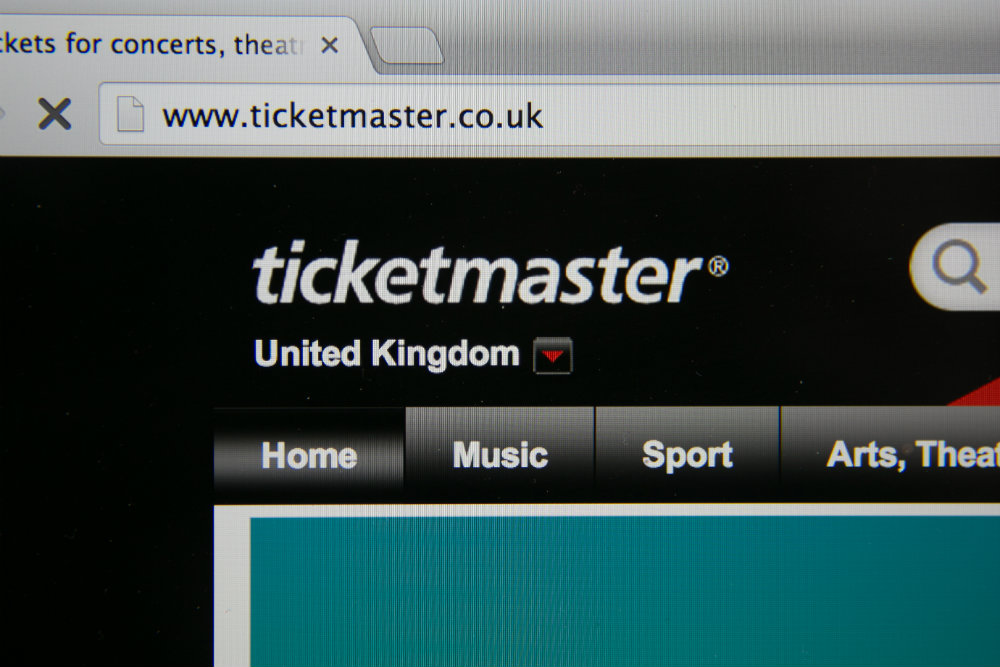According to a joint investigation from the CBC and the Toronto Star, Ticketmaster has secretly partnered with scalpers to inflate ticket prices. Investigative journalists from both outlets went undercover as smalltime scalpers at the industry conference Ticket Summit 2018 held in Las Vegas in July and discovered that Ticketmaster was enabling scalpers to resell their tickets on a proprietary platform that kicks a cut of the resale fee back to Ticketmaster. In other words, the ticketing company can collect a service fee on a ticket twice: once when they sell the ticket to scalper and a second time when the scalper resells the ticket at an inflated price on Ticketmaster’s platform called TradeDesk. The CBC broke the math down as such:
So, for example, if Ticketmaster collects $25.75 on a $209.50 ticket on the initial sale, when the owner posts it for resale for $400 on the site, the company stands to collect an additional $76 on the same ticket.
TradeDesk also allegedly allows resellers to bypass the six to eight ticket limit Ticketmaster imposes to ostensibly deter scalpers by turning a blind eye when resellers use bots to sweep up large quantities of tickets. From the Star:
Ticketmaster’s terms of use prohibit customers from buying “a number of tickets for an event that exceeds the stated limit for that event.” That limit, which is posted when tickets go on sale, is typically six or eight seats per buyer.
“If we identify breaches of these limits … we reserve the right to cancel any such orders,” read Ticketmaster’s general terms and conditions. “Use of automated means to purchase tickets is strictly prohibited.”
But ticket resellers who break those rules have no reason to be concerned, the sales executive reassured. A blind eye will be turned.
“We don’t spend any time looking at your Ticketmaster.com account. I don’t care what you buy. It doesn’t matter to me,” said the Trade Desk sales executive. “There’s total separation between Ticketmaster and our division. It’s church and state … We don’t monitor that at all.”
While officials from Ticketmaster have publicly disparaged scalpers, the company’s resale division has apparently been actively making resellers’ jobs easier.
Ticketmaster did not immediately respond to Spin’s request for comment, but a rep did send the following statement to the CBC:
“As the world’s leading ticketing platform, representing thousands of teams, artists and venues, we believe it is our job to offer a marketplace that provides a safe and fair place for fans to shop, buy and sell tickets in both the primary and secondary markets.”
Update (9/20 11:27 am EST): On Thursday morning Spin received the following statement from a Ticketmaster rep:
It is categorically untrue that Ticketmaster has any program in place to enable resellers to acquire large volumes of tickets at the expense of consumers.
Ticketmaster’s Seller Code of Conduct specifically prohibits resellers from purchasing tickets that exceed the posted ticket limit for an event. In addition, our policy also prohibits the creation of fictitious user accounts for the purpose of circumventing ticket limit detection in order to amass tickets intended for resale.
A recent CBC story found that an employee of Ticketmaster’s resale division acknowledged being aware of some resellers having as many as 200 TradeDesk accounts for this purpose (TradeDesk is Ticketmaster’s professional reseller product that allows resellers to validate and distribute tickets to multiple marketplaces). We do not condone the statements made by the employee as the conduct described clearly violates our terms of service.
The company had already begun an internal review of our professional reseller accounts and employee practices to ensure that our policies are being upheld by all stakeholders. Moving forward we will be putting additional measures in place to proactively monitor for this type of inappropriate activity.





